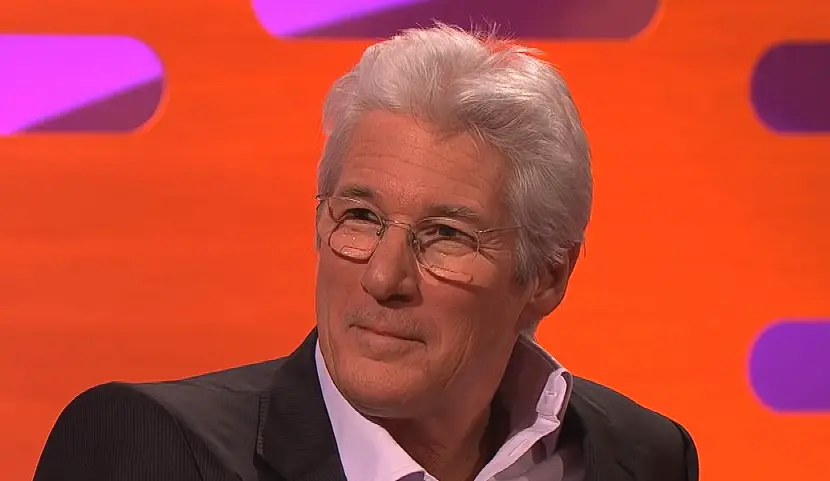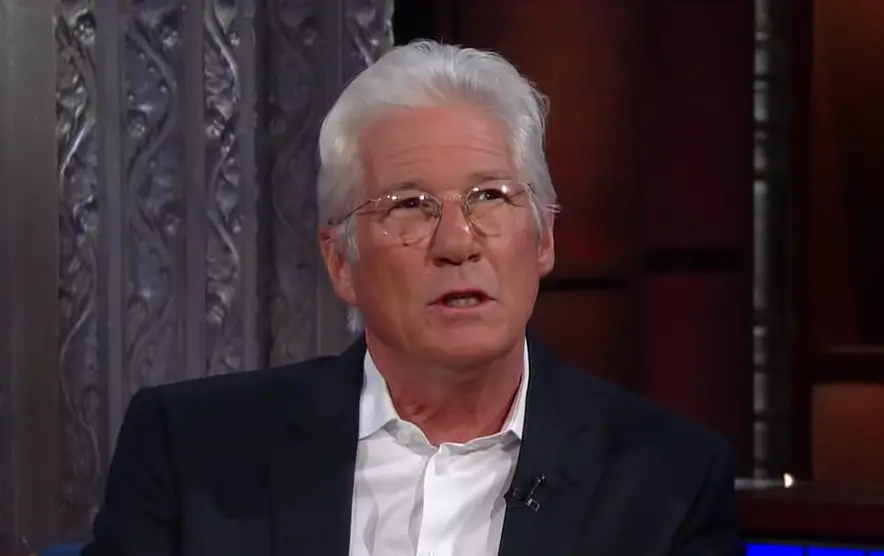Richard Gere is one of the most successful actors in Hollywood, but he has also been the target of a blacklist by the Chinese government. This blacklist has prevented him from working in China and has also made it difficult for him to get roles in Hollywood films.
There are a number of reasons why Gere was blacklisted. First, he is a vocal critic of the Chinese government’s human rights record. He has spoken out against China’s treatment of Tibet and its crackdown on democracy activists. In 1993, he even gave a speech at the Academy Awards in which he denounced China’s human rights record.
Second, Gere is a close friend of the Dalai Lama, the spiritual leader of Tibet. The Chinese government considers the Dalai Lama to be a separatist and a threat to its rule over Tibet. As a result, Gere’s association with the Dalai Lama has made him a target of the Chinese government’s ire.
Third, Gere has been involved in a number of projects that have been critical of the Chinese government. In 1997, he starred in the film “Red Corner,” which was about an American businessman who is arrested and imprisoned in China on false charges. The film was critical of the Chinese legal system and its treatment of foreigners.
Reasons Why was Richard Gere Blacklisted
Richard Gere has been blacklisted by the Chinese government for a number of reasons, including:
- His vocal criticism of the Chinese government’s human rights record. Gere has spoken out against China’s treatment of Tibet and its crackdown on democracy activists. In 1993, he even gave a speech at the Academy Awards in which he denounced China’s human rights record.
- His close friendship with the Dalai Lama. The Chinese government considers the Dalai Lama to be a separatist and a threat to its rule over Tibet. As a result, Gere’s association with the Dalai Lama has made him a target of the Chinese government’s ire.
- His involvement in projects that have been critical of the Chinese government. In 1997, Gere starred in the film “Red Corner,” which was about an American businessman who is arrested and imprisoned in China on false charges. The film was critical of the Chinese legal system and its treatment of foreigners.
- His support for the Tibetan protests in 2008. Gere spoke out in support of the Tibetan protests that were taking place in the lead-up to the Beijing Olympics. He called for a boycott of the Olympics and urged the Chinese government to respect the rights of Tibetans.
- Box office performance: Some of Gere’s films haven’t fared well commercially, leading to fewer offers and less visibility.
- Shifting audience preferences: Public taste in film genres and actors can change over time. Gere’s brand of romantic leading man might not have resonated as strongly with audiences in certain periods.
- Controversial choices: Gere’s involvement in activism and his outspoken views on some topics have sometimes generated controversy, potentially impacting his public image and film choices.
- Personal life: Like any public figure, Gere’s personal life has been subject to media scrutiny and occasional controversies, which can sometimes affect career trajectories.
- It’s important to remember that these are just potential factors, and it’s
These actions have made Gere a persona non grata in China. He has been banned from visiting the country and his films have been banned from being shown in Chinese theaters. He has also been blacklisted by some Hollywood studios, who are afraid of offending the Chinese government.
The blacklisting of Richard Gere is a clear example of how the Chinese government uses its economic power to silence its critics. It is a reminder that even the most successful celebrities are not immune to the Chinese government’s wrath.
Why Doesn’t Richard Gere Make Movies?

Richard Gere has not made a major Hollywood film since 2016. There are a few possible reasons for this.
- His blacklisting by the Chinese government. As a vocal critic of China’s human rights record and a close friend of the Dalai Lama, Gere has been blacklisted by the Chinese government. This means that his films are banned in China, which is a major market for Hollywood films. As a result, studios may be reluctant to cast him in major roles, as they do not want to alienate the Chinese market.
- His age. Gere is 72 years old, and he may be choosing to focus on other things in his life, such as his family and his activism. He may also be finding it more difficult to get the kind of roles that he wants as he gets older.
- His personal preferences. Gere has said that he is not interested in playing the “wizened Jedi” in big-budget films. He may prefer to focus on smaller, independent films that allow him to explore more challenging roles.
It is also possible that a combination of these factors is at play. Whatever the reason, it is clear that Richard Gere is no longer the A-list actor that he once was. However, he remains a respected actor and activist, and he continues to work on projects that he is passionate about.
Conclusion
Richard Gere is an American actor who has starred in many popular films. He is also a known political activist, and his advocacy for Tibet has made him a target of the Chinese government. In 1997, Richard Gere visited Tibet and spoke out against China’s occupation of the country.
This led to him being blacklisted by the Chinese government, and he has not been allowed to enter the country since then. Richard Gere has continued to speak out against China’s policies in Tibet, and he remains one of the most vocal celebrities on this issue.
You May Also Like:


